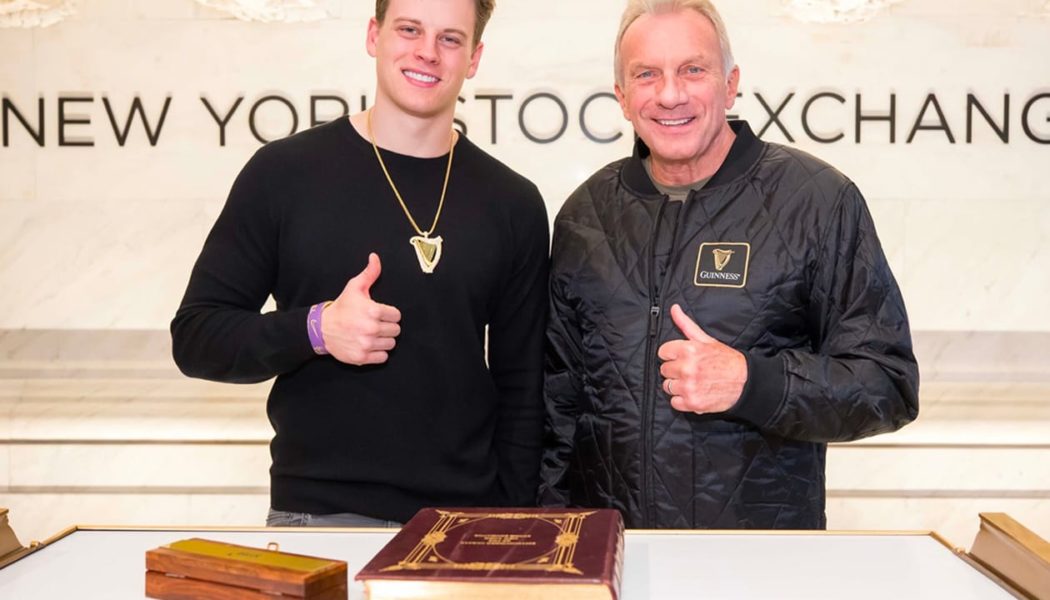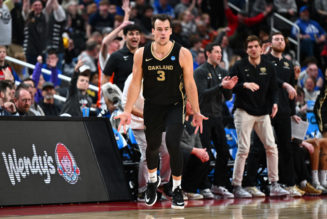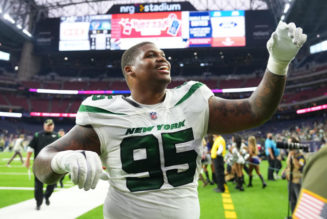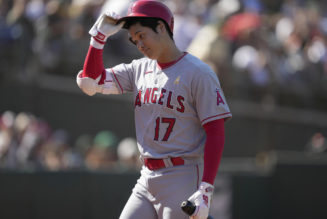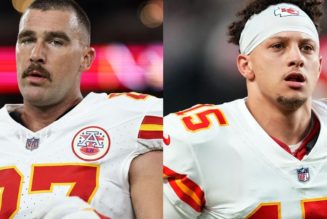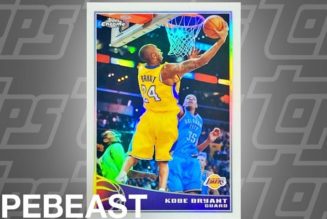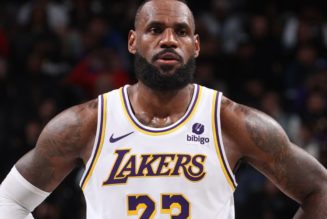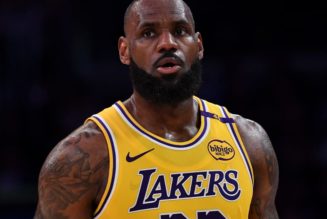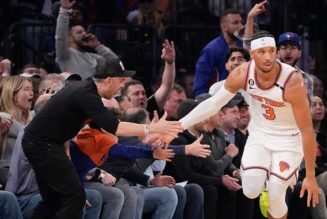The frenzy that is Super Bowl week is almost to a close, as the San Francisco 49ers and the Kansas City Chiefs square off in the big dance for the second time in four years this Sunday, February 11. There are too many storylines to cover — from the constant questioning of Brock Purdy to the MAGA-led conspiracy theories revolving around Taylor Swift and Travis Kelce allegedly rigging the Super Bowl to somehow prevent Donald Trump from being reelected as president of the United States.
Cincinnati Bengals quarterback Joe Burrow and Hall of Fame Niner Joe Montana won’t be in the game this weekend, but they know a thing or two about the circus that is the Super Bowl. “I think it’s kind of a representation of the media culture that we’re in right now,” Burrow tells Hypebeast. The two spoke to us about their own experiences dealing with the loaded media obligations and photoshoots, while staying prepared for the biggest game in football.
While the conversation centered around their own experiences and thoughts around the game, it was also an opportunity to chat about how they’ve been working with Guinness as part of the Irish beer company’s Give Back program that, amongst other initiatives, has been working in tandem with The Joe Burrow Foundation, which aids underprivileged and underserved communities dealing with food insecurity. “They’re a wonderful organization that we’re with,” Montana added. “It’s been a great partnership and I look forward to continuing this. We’ve had great experiences almost everywhere we’ve gone.”
As for the game itself, Burrow and Montana were both quick to recognize the greatness that has been played by both clubs throughout the season, despite the rhetoric in the media brandishing either side. Read the full interview below on the quarterbacks’ thoughts on their partnership with Guinness, how they mentally prepared for the big game, why it’s so difficult to appreciate greatness in the moment and who they think will hoist the Lombardi trophy on Sunday night.
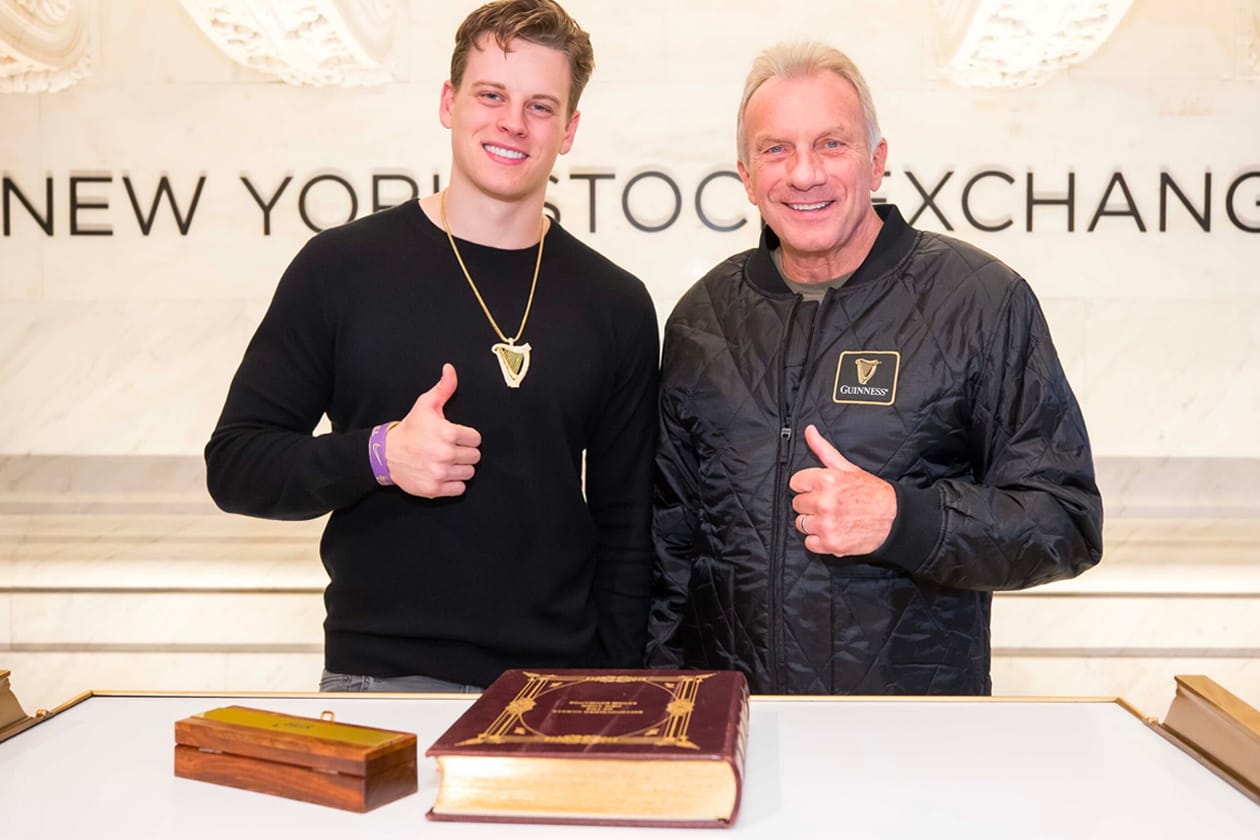
Courtesy of Guinness
Before we get to the big game, what do you guys have in store for the upcoming St. Patrick’s Day?
Burrow: We’re going to partner with my foundation to combat food insecurity, which is something that is near and dear to my heart. That’s coming in March, so I’m excited about that — help a lot of people out in that area. My parents are involved in my foundation. So that’s all of my worlds collide and so that’s an exciting opportunity for us.
Montana: And that weekend after that we’ll be in Baltimore, where Guinness has opened their fist brewery here in the US, called Golden Gate Brewery. We’ll be doing some stuff locally there for their Give Back program at the same time. Also probably having a Guinness or two.
Can you talk about this partnership with Guinness and how football can be used as a platform for change and good for the community?
Burrow: Football has given both of us so much. More than I could ever have asked for. So I think we kind of have a responsibility to help the people out that helped get us here. And that’s something that I’ve always thought about and something that my parents always talk to me about. Whenever we have the opportunity to do that, I try to take it. When there’s a sponsor like Guinness that you can partner with that has the same passion and same morals that you do, it turns out to be a match made in heaven.
Montana: I think part of the reason we’re both here, obviously, my story goes back how I first fell in love with Guinness while I was in Ireland. But the thing that keeps you here is: one, giving back to the communities they work in. They’re a wonderful organization that we’re with and for. It’s been a great partnership and look forward to continuing this. We’ve had great experiences almost everywhere we’ve gone.
Whatever we do as a promotion, there’s always some part of it that involves giving back to the community wherever we go. So it’s been one of the best partnerships I’ve been involved with in a long time.
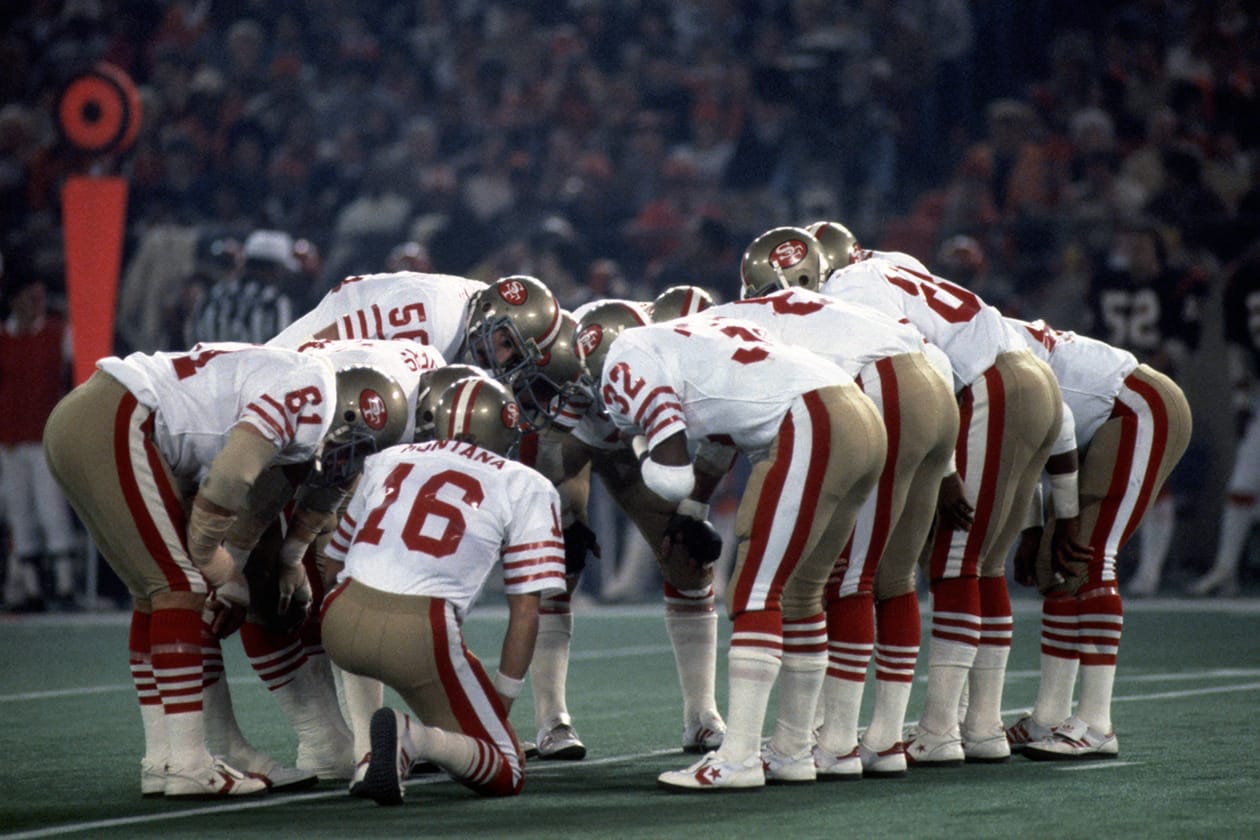
George Gojkovich/Getty Images
As for the big dance itself, can you both recall the moments leading up to the game. Professionals always say that it’s just another game, but is it really? Take us through your own memories of playing in your first Super Bowl?
Burrow: It’s always a challenge to make it that way in your mind, but I think you have to. The biggest challenge is: you have a lot more media obligations for those two weeks and trying to schedule your time as close to what it would be on a normal game week during the season. It’s not realistic, but I think you have to try to maintain that routine that got you there, otherwise, you’re going to probably not be successful.
And that’s a challenge for everybody playing this weekend is the interviews, photo shoots, all the above and you have to try and put that to the side and go and perform.
Montana: Bill made it easy for us. Our first Super Bowl, everybody was complaining about our curfew, because it was at 11:15. Everyone was saying, ‘Wow, they’re out [Miami Dolphins] till one or two.’ He said, ‘Look, we didn’t come here to party and have fun. We came here to do a job and we’ll party when it’s over. I know you don’t like it, but that’s the way it is.’ Then he made curfew 10:30 [laughs]. This is just the way it is, fortunately for us, he was right.
Who were the players you looked up to while coming up as a child and in college?
Burrow: There were so many guys that I watched. I was a big Drew Brees fan. Obviously Tom [Brady] was always in the big game when I was growing up. Peyton Manning was always playing at a high level. But I really liked basketball. Growing up, basketball was my favorite sport and so…
Montana: …me too.
Burrow: …so I love Kobe. I love LeBron. I was a big Cavs fan. Zydrunas Ilgauskas was one of my favorite players growing up. I was more of a basketball guy.
Montana: That’s so funny, because probably one of the only pieces of memorabilia that I have is a friend of mine heard I was a Celtics fan, Sam Jones fan and Bill Russell. So he found a picture signed by Russell, [John] Havlicek and Sam Jones walking off the court and he gave it to me one day. But other than that, as a kid growing up, I actually thought I was going to play basketball in college. Good thing I didn’t [laughs].
I grew up when the Steelers were winning Super Bowls, so watching [Terry] Bradshaw go from — they say, ‘from the outhouse to the penthouse’ — after winning four and [Joe] Namath was doing his thing also. But the guy I watched the most was Johnny U. Then again, like I said, basketball was fun too. I was a big Kareem fan. Wasn’t a Lakers fan, but I loved watched Kareem, especially when he was at UCLA.
And Johnny U also grew up in the same area as you did. ‘The Cradle of Quarterbacks.’
Montana: Yeah he did.
Is there something in the water over there that breeds quarterbacks?
Montana: I think it’s the beer. It’s the river water that goes into the local beer.
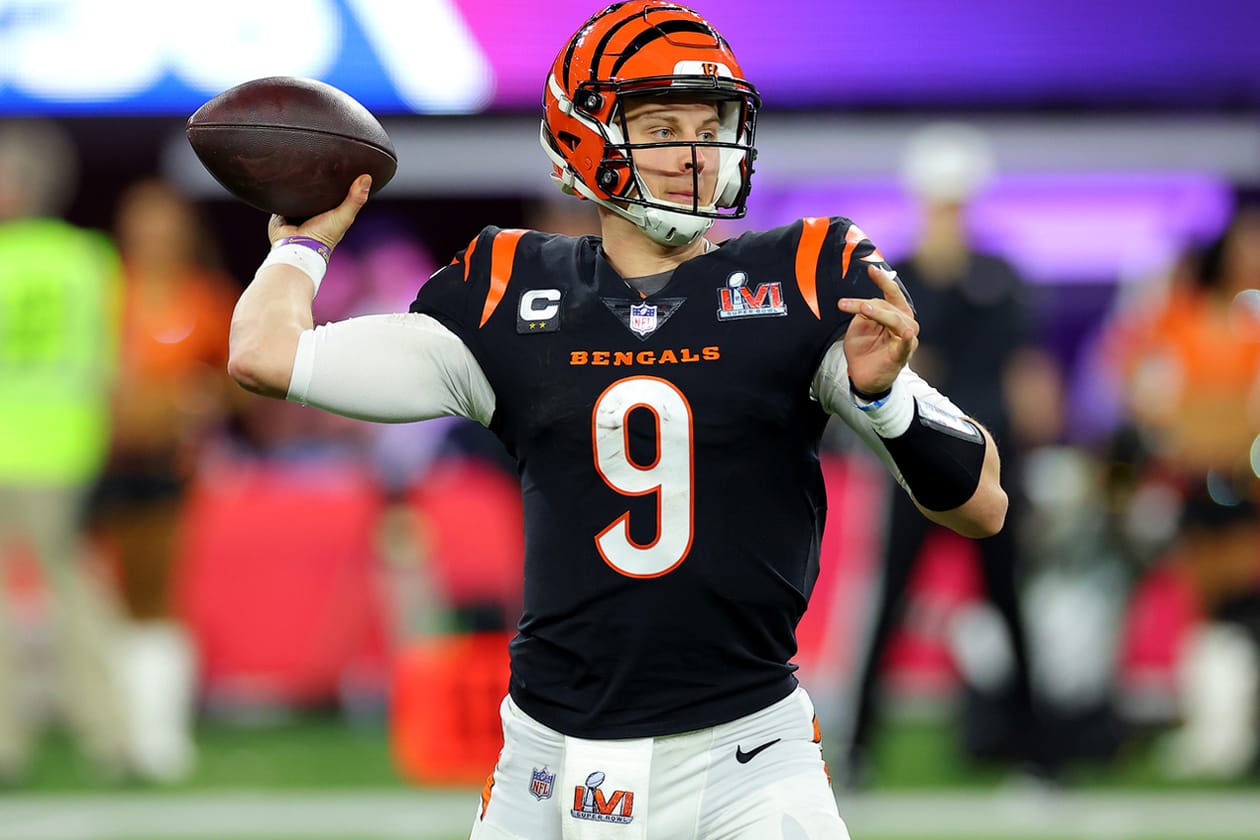
Kevin C. Cox/Getty Images
And Burrow, I’m sure there are a lot of players you play with currently that are your favorite, but are there any others in the league that you both like watching today just as a fan?
Burrow: There are so many guys that are playing at a high level right now. Obviously, Josh Allen, Lamar Jackson, Dak Prescott. You see Brock Purdy doing his thing. Patrick is playing great, week in and week out. There’s so many guys and I think it’s an exciting era of football, because there’s so many different styles of quarterbacks that are making the position their own. So that’s exciting for the fans. But everybody is doing that specific thing at a high level and being able to win games doing that.
Montana: Yeah, he named all the right ones. The other guy, Justin Herbert, I like watching him too. It’s crazy, because I walk around and they’re all too damn big [laughs]. I’m around them going, ‘Geez.’ Look up to the quarterbacks like basketball players. It’s fun and Joe hits it best — everyone has their own style. And you don’t try to emulate people; you like to watch them, but it’s not something you want to…people say, ‘He wants to be like you.’ No he doesn’t want to be like me. He wants to be better than me. That’s the way you should think. So you have to do the things you know you can do well and then concentrate on it and be yourself.
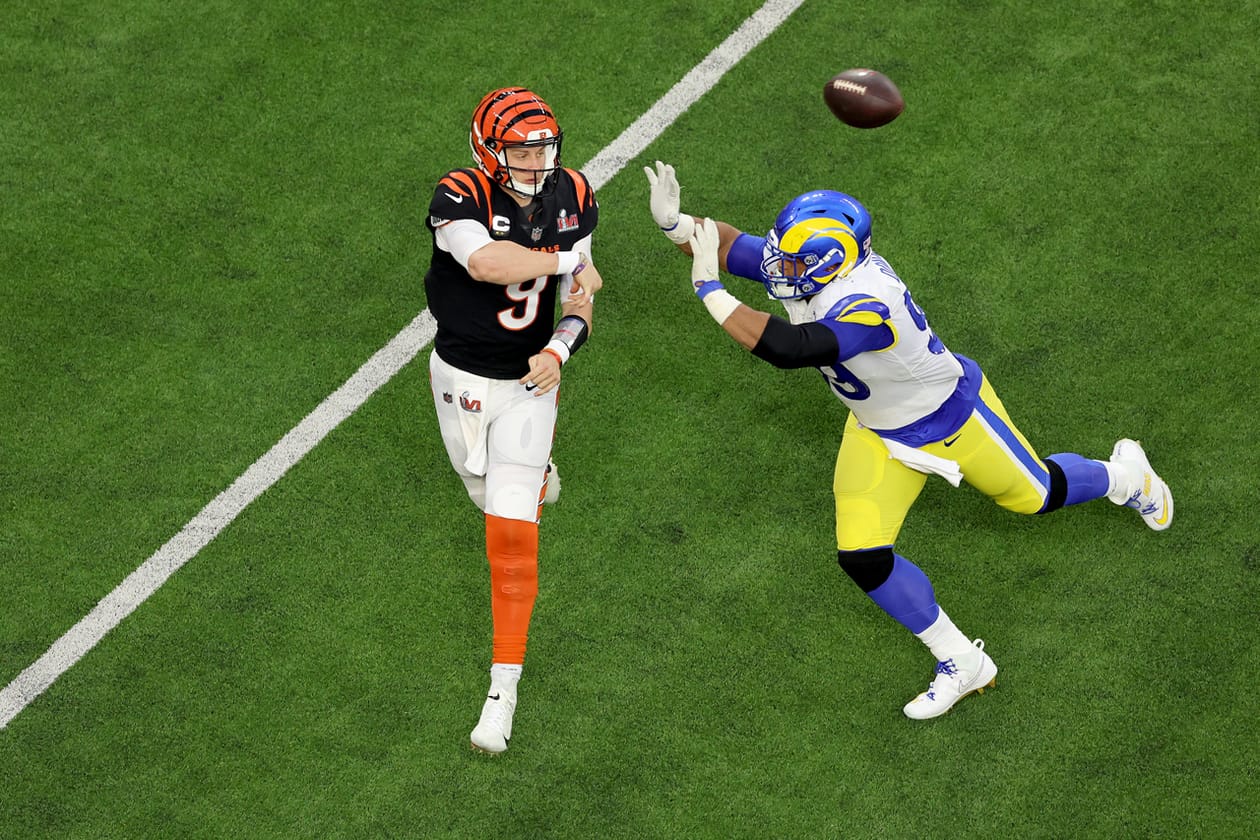
Gregory Shamus/Getty Images
Who are you taking to win Super Bowl LVIII and why?
Burrow: You never know how it’s going to play out. I’m not going to sit here and take one side or the other. I got friends on both sides, but anything can happen in one game. You never know how it’s going to play out. It’s going to come down to who makes the most plays in the last six to seven minutes of the game. It’s going to be an exciting game. I think it’ll be close — two really good defenses, two really good quarterbacks, two great offenses. I think they have the right two teams in the game.
Montana: I’m pulling for the 49ers. I’m kind of torn between the two, because I played for both. Chiefs have already won a couple and it’s been like 30 years since the 49ers have won one. So I’m kind of leaning in that direction to pull in for ‘em. But unfortunately, that guy that wears 15, he’s tough to beat in these types of situations. And although, one of the big defensive lineman is going to out for the Chiefs [Charles Omenihu]. So I don’t know how much that will affect their defense, because both defenses have been playing fairly well. 49ers had a little issue last week with the run, but I’m gonna’ hang in there with the 49ers.
Talking about players like Mahomes and I think of your own college and pro careers. Why do you think it’s so difficult for society, collectively, to appreciate greatness in the moment? Think of your own careers, Mahomes today or Jordan in his day.
Burrow: I think it’s kind of a representation of the media culture that we’re in right now. It’s always comparing two guys — ‘this guy’s better, this guy is worse. Oh this guy won this game, this guy didn’t.’ You can’t just sit back and appreciate the art and play that people are putting out there. You have the sports talk shows that are…you know, that’s what they do and it’s good for the game. It’s rating that brings more attention to us and football. But at the same time, it’s harder to appreciate the greatness that people are seeing on the field, because the rhetoric in the media is so combative.
Montana: I think when you look at it, social media is easier and more fun if somebody fails than if it is to say somebody’ being successful. And they’ll keep saying it and keep saying it. Let’s take Brock Purdy, for example. Say if he loses, ‘He can’t win the big game.’ That will be the first thing that’s going to happen. And he had a great season, but yet, they’ll try and bring him down as fast as they can. They’re already trying to bring him down and he hasn’t even played the game yet. But I think that’s our world that we live in today. I mean, turn on the TV — do you ever see any good news? There’s nothing but bad news. It’s easier to do.
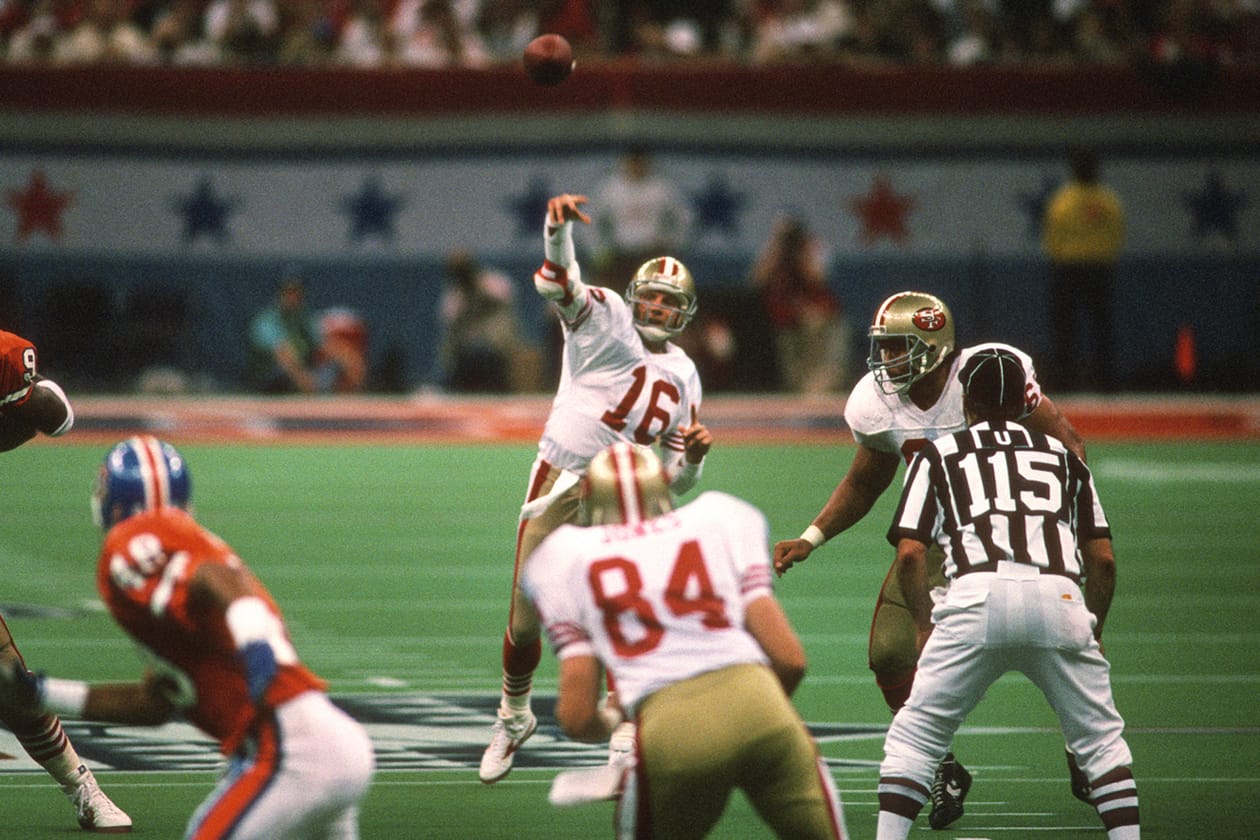
Focus on Sport/Getty Images
What was the greatest piece of advice you both have ever received? What is your advice for the next generation?
Burrow: That’s a loaded question. I think growing up in this society, is you have to be able to compartmentalize your life in a way that promotes success. Because say you want to go play Division I football and you’re in high school, you can’t get caught up in the recruiting rankings and what the media is saying about you. You just have to focus on the day-to-day and get better each and every day. Focus on being the best person and athletes that you can be. Results are a byproduct of that. And the quicker that you realize that, the process is what it’s all about, then you’re going to get to the destination that you want to get to.
Montana: I learned from Bill Walsh that once I got there, I thought that I was pretty well prepared. We [Notre Dame] played a lot of big games and won a National Championship. We played that semi-pro team USC every year [laughs]. But when I got there [49ers], he taught me a different level of preparation. It sort of alludes to what Joe said: it isn’t just Sunday. It’s the day-to-day that gets you to Sunday, that allows you to be successful on that day.
I still speak around the country and talk about [how] it’s not just about being prepared for that big sales pitch. It’s coming to work every day and preparing for that sales pitch that will allow you to have that success. Everyone says ‘there’s no I in team.’ I say there is, because it’s the me person that you don’t want. ‘When are you going to give me the ball? When are you going to do this for me?’
But you should be saying: ‘What can I be doing everyday to make myself better that will in turn make my team better?’ I think we lose focus of that. Sometimes it’s the people around you that you surround yourself with. We had a lot of individuals on our team when I first got there that Bill knew didn’t fit the culture and slowly weeded them out. And even if you were a good player, if you were a problem in the locker room, he [Bill] found a way to move you on. I think you just have to be focused on making yourself better, that will in turn help everybody around you.
